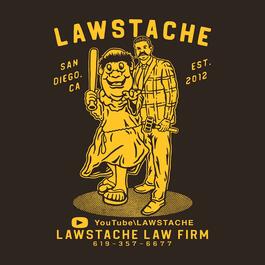
Collect Call with Lawstache
Every week, Anton Vialtsin (California attorney and YouTuber) discusses legal cases from the Supreme Court, 9th Circuit, and California State Courts. We focus on the First, Second, Fourth, Fifth, and Eighth Amendments. We make predictions and scrutinize the law. Anton Vialtsin handled over a hundred federal criminal cases from initial client interviews through sentencing. He has an in-depth knowledge of the Federal Sentencing Guidelines, the Federal Criminal Codes and Rules, mandatory-minimum sentences, the death penalty, and too many state laws to list.
Show episodes

New 2025 Federal Sentencing Guidelines Just Changed Everything for Drug Cases. Are You Eligible?
San Diego Federal Drug Defense: 2025 Sentencing Changes for Border Couriers & Minimal Role Reductions If you"ve been charged with transporting drugs across the San Diego-Mexico border, the 2025 federal sentencing guideline amendments could significantly reduce your potential prison time. As a San Diego criminal defense

Can Police Search a Bag in Your Car Without a Warrant? | California v. Acevedo and 4th Amendment
Can police search a bag in your car without a warrant? The Supreme Court says yes—and this decision affects thousands of traffic stops and drug arrests every year. In California v. Acevedo (1991), the U.S. Supreme Court expanded the automobile exception to the Fourth Amendment, allowing police to search containers insi

Top 10 Criminal Law Cases and Myths | PART 10: Don't wait until things go wrong to hire a lawyer.
Strickland v. Washington (1984) is one of the most important criminal defense cases in American history. In this final episode of Top 10 Most Important Criminal Defense Cases series, San Diego Criminal Defense Attorney Anton Vialtsin breaks down the Supreme Court decision that created the modern standard for ineffectiv

Top 10 Criminal Law Cases and Myths | PART 9: Everything you need to know about your SENTENCING.
In United States v. Booker (2005), the Supreme Court transformed federal sentencing forever. Before Booker, federal judges were required to follow strict sentencing guidelines — even when they led to unfair results. But the Court ruled that mandatory guidelines violated the Sixth Amendment right to a jury trial. This l

Top 10 Criminal Law Cases and Myths | PART 8: Prosecution can't hide evidence favorable to accused
What really happened in Brady v. Maryland (1963) — and what does a Brady violation actually mean? In this video, we break down one of the most important Supreme Court decisions in criminal law history. You’ll learn how Brady v. Maryland changed the way prosecutors must handle evidence, why the case still matters today,

Top 10 Criminal Law Cases and Myths | PART 7: Privacy rights in the digital age. Cell Phone GEO data
In Carpenter v. United States (2018), the Supreme Court faced a modern privacy dilemma: can the government track your cell phone’s location without a warrant? This landmark Fourth Amendment case reshaped digital privacy law and limited the “third-party doctrine” that had ruled for decades. Join us in Part 7 of our Top